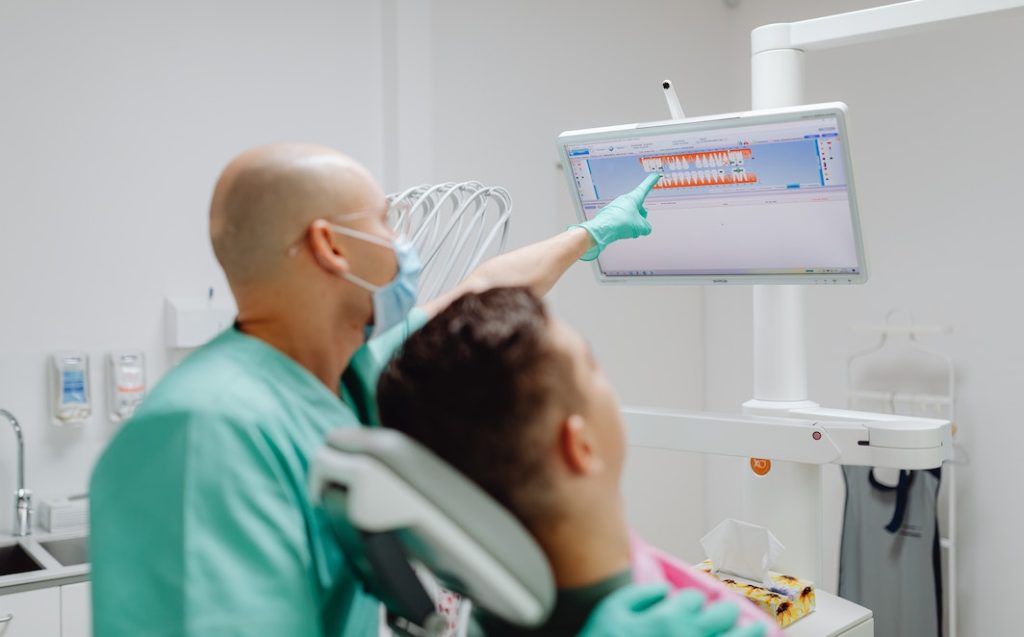Although wisdom teeth removal is essentially the same for teenagers and adults, you can still anticipate what will happen before, during, and after your procedure. Impacted wisdom teeth are the ones that usually require surgery. The signs and symptoms of an impacted wisdom tooth include:
- Bad breath
- Swelling and inflammation around the gums
- Pain when biting down
- Tooth decay
- Crowding of teeth
- Cysts or tumors around the impacted tooth
You should see your dentist or oral surgeon if you have any signs or symptoms.
Before Your Wisdom Tooth Extraction
Before your wisdom tooth extraction, your dentist or oral surgeon will thoroughly examine you. This exam will include taking x-rays of your mouth to get a good look at the position of your wisdom teeth. The x-rays will also help your oral surgeon determine if your wisdom teeth are impacted.
You’ll likely be given an anesthetic to numb the area around your wisdom teeth. You may only need a local anesthetic to numb the area for simple extractions. However, for more complex extractions (like if your wisdom teeth are impacted), you may need a general anesthetic to put you to sleep for the procedure.

During Your Wisdom Tooth Extraction
If you have a general anesthetic, your surgeon will numb you (or put you to sleep) and then cut your gum tissue to expose the wisdom tooth. If the tooth is easily removed, it may come out whole. But the doctor might need to take it out in pieces if it’s impacted.
An implantologist can also be brought in to place an implant while your wisdom tooth is removed. They can place an artificial tooth in the space where your wisdom tooth was removed.
This happens when the removal of the wisdom tooth uncovers a space in your mouth that would otherwise go unused.
After Your Wisdom Tooth Extraction
Once your wisdom teeth have been removed, your dentist or oral surgeon will clean the area and close up any incisions with stitches. You can expect some swelling and discomfort after the procedure, so it’s important to rest and take it easy for a few days. You’ll likely be given a painkiller to help with any discomfort. Ice packs can also help reduce swelling.
What You Can Do at Home
To promote healing and reduce swelling, follow these tips after your wisdom tooth extraction:
Rest: Take it easy for the first day or two after your procedure. Avoid any strenuous activity that could cause bleeding or injury to the area. Proper rest and sleep will help you recover faster.
Eat soft foods: Stick to soft foods like soup, pudding, and applesauce for the first few days. Gradually add other soft foods back into your diet as you feel comfortable.
Brush and floss carefully: Gently brush your teeth the night of your procedure. The next day, brush and floss as usual, but be careful around the extraction site.
Use ice packs: Apply ice packs to your face for 20 minutes to reduce swelling.
Follow your dentist’s instructions: Be sure to follow your dentist’s or oral surgeon’s instructions on how to care for the extraction site and take any prescribed medication.
In Case of Swelling and Excessive Bleeding
It’s normal to have some swelling and bleeding after your wisdom tooth extraction. However, call your dentist or oral surgeon if the swelling or bleeding is excessive. Excessive swelling could be a sign of infection. Excessive bleeding could mean that the blood clot at the extraction site has come loose. If this happens at home, you can bite on a clean gauze pad for 20-30 minutes or until the bleeding stops.
When to See Your Dentist Again
After your wisdom tooth extraction, you’ll likely have a follow-up appointment with your dentist or oral surgeon. They’ll want to make sure that the extraction site is healing properly. You may also need to take x-rays to check your healing progress.
What to Expect on Your Follow-Up Check Up
After your wisdom tooth extraction, the area where your tooth was removed will likely be sore for a few days. You may also have some swelling and bruising. These symptoms should start to improve within a few days. If you had stitches, they’d usually dissolve within one to two weeks. Call your dentist or oral surgeon if you develop an infection, or your swelling worsens.
Overall
Although removing your wisdom teeth is routine, you may experience discomfort and swelling afterward. Following your dentist or oral surgeon’s post-operative instructions will ensure a speedy recovery.






